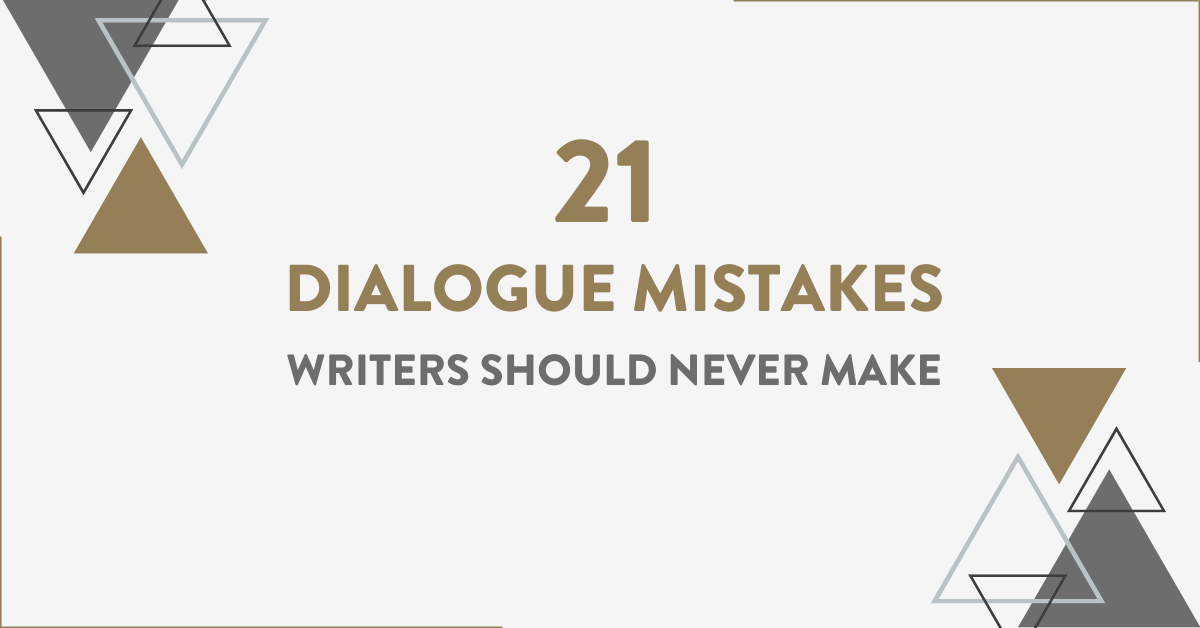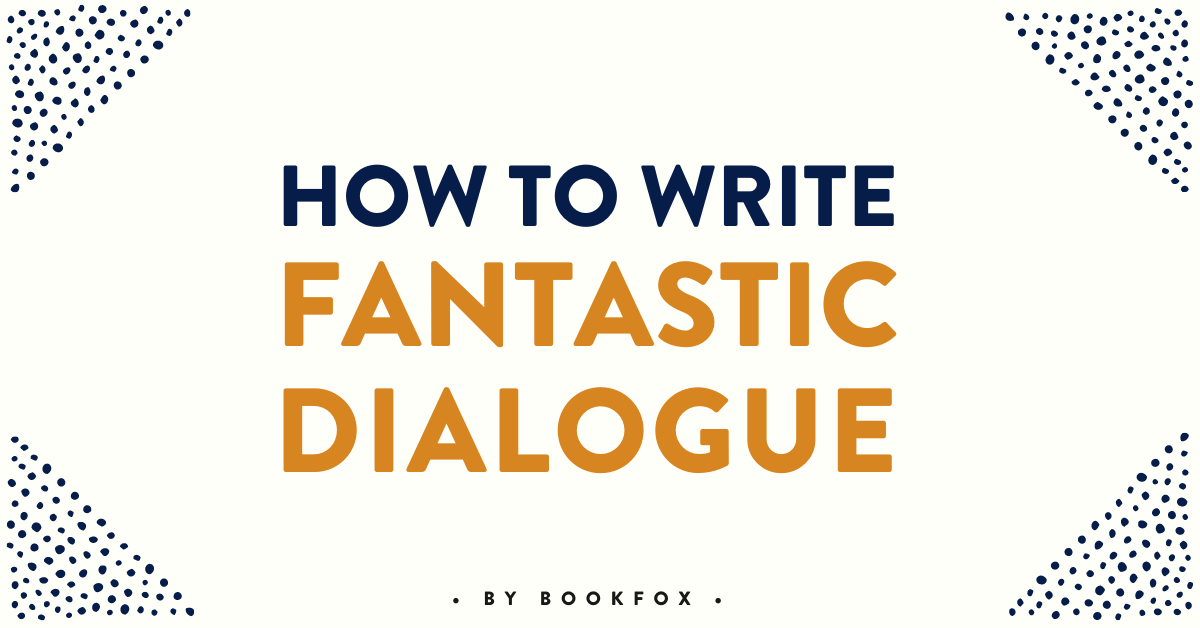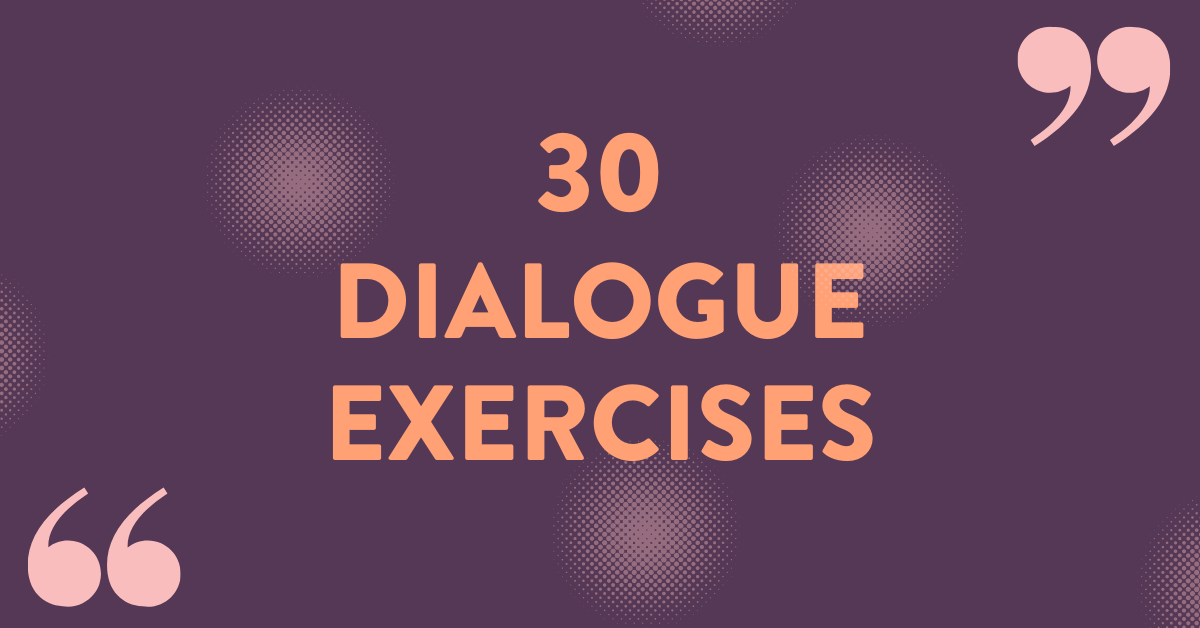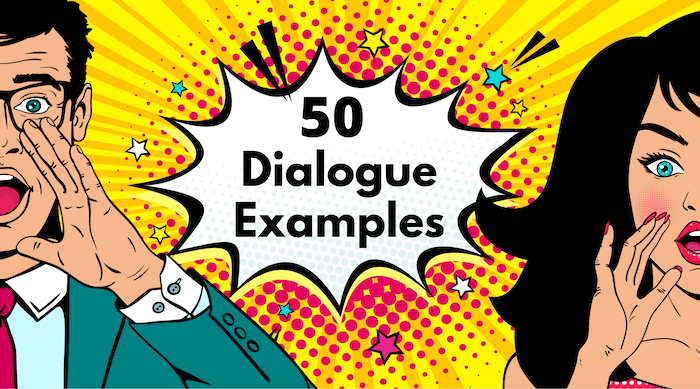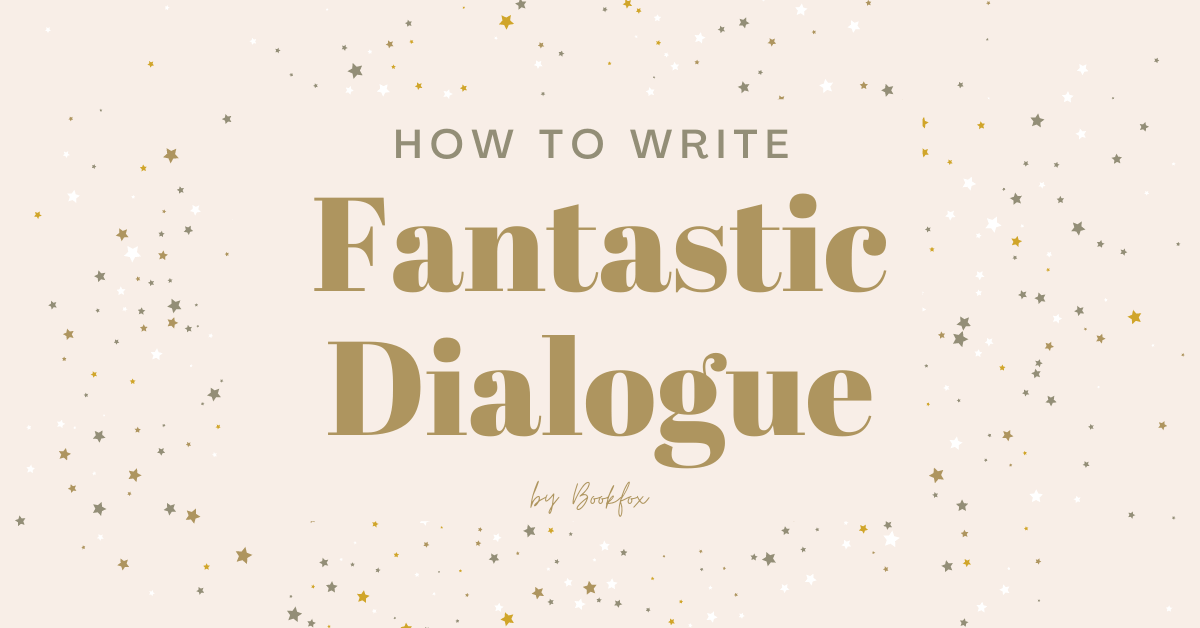Nothing can ruin a book faster than bad dialogue. It makes readers roll their eyes and give up on your book. Fantastic dialogue, on the other hand, reveals character, gives us a sense of place, provides tension and emotion, and helps move the plot forward. To help you out with writing dialogue, I’m going to […]
The Blog
- All posts
- All Popular Posts
- Characters
- Children's Books
- Dialogue
- Editing
- Endings
- Literary Agents
- Marketing
- Novels
- Plot
- Point of View
- Publishers
- Short Stories
- Writing Techniques
- Writing Wisdom
- 21 Dialogue Mistakes Writers Should Never Make

- How to Write Fantastic Dialogue: 15 Tips You’ll Never Forget

If there’s one essential element to make your fiction more entertaining, it’s writing better dialogue. Dialogue entertains readers, delights agents, and thrills publishers. If you have fantastic dialogue, it will cover a multitude of narrative sins. I’d recommend bookmarking this post so you could come back to it (because I’m about to download a massive […]
- 30 Dialogue Exercises to Light Up Your Fiction

If you want practice writing some dialogue, these exercises will stretch your creative writing muscles. More importantly, you’ll learn techniques that you can apply to all your future dialogue writing. If you want to see examples of dialogue, please visit my post on 50 Examples of Dialogue Writing. Otherwise, please read on and make sure […]
- 50 Examples of Dialogue to Inspire Writers

Every writer needs to learn dialogue from the great writers preceding them. This post isn’t about how to punctuate dialogue, or the basics of how to write dialogue, but more advanced techniques, as shown by established authors. It doesn’t matter what genre you write: every writer needs to improve their dialogue. And whether you’re writing […]
- Write Fantastic Dialogue: 33 Tips to Spruce up Your Story

Nothing ruins a story faster than bad dialogue. Good dialogue, on the other hand, can be tricky to write. It takes more than putting the quotation marks in the right place and adding some dialogue tags. But Bookfox is here to help. In this post, we cover all the tips, tricks, and secrets you need […]
- A Crash Course on Writing Dialogue Tags

One of the hardest things about writing is nailing dialogue, and many writers mess up dialogue tags. How do you describe with mere words the complexity of a conversation? Unlike film, in which characters’ expressions and inflections can be clearly observed, in writing, the author has to paint these scenes without using a visual image. […]
